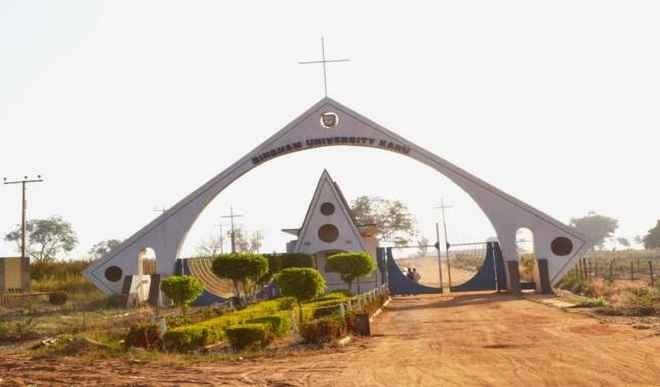Bingham varsity slashes school fees by 46 per cent
The Bingham University, Karu in Nasarawa State, has slashed the fees on some of its programmes by 46 per cent, in the efforts to encourage indigent students, according to its Vice Chancellor, Prof. William Qurix. Qurix, at a pre-convocation press briefing on Thursday, said that the measure by the university owned by the ECWA Church, […]

The Bingham University, Karu in Nasarawa State, has slashed the fees on some of its programmes by 46 per cent, in the efforts to encourage indigent students, according to its Vice Chancellor, Prof. William Qurix.
Qurix, at a pre-convocation press briefing on Thursday, said that the measure by the university owned by the ECWA Church, was among many others aimed at easing access to the university.
He said that courses affected by the reduction included first degrees in Mathematics and Statistics, Industrial Physics, Industrial Chemistry and English.
According to him, the fees for the courses, which used to be N751,250 per session, have been reviewed to N400,000 to encourage more students to pursue the programmes.
Other discounts covered first degrees in Biochemistry and Microbiology, whose fees of N751,250 have been pegged to N600,000 each.
The Vice Chancellor, however, said that the special scholarship scheme would commence from the 2018/2019 academic session.
On the university’s third combined convocation slated to hold on Saturday, Jan. 19, 2019, Qurix said that a total of 696 students would receive first degrees, with 33 of them bagging first class.
He said that 299 would receive Second Class Upper degrees, while 278, 45 and two would bag Second Class Lower, Third Class, and Pass degrees in the convocation organised for the 2016/2017 and 2017/2018 graduating classes.
According to him, honourary degrees will be awarded to Prof. Julius Okojie, former Executive Secretary of the National Universities Commission (NUC), Prof. Eyitayo Lambo, former health minister, and Mrs. Ruth Garba, an educationist.
“We are honouring Okojie for his efforts to encourage private universities; we are also honouring Lambo for ensuring stability in the health sector even when he is the first non-medical doctor to head the sector.
“Throughout Lambo’s tenure as health minister, there was no strike. We find this very amazing,’’ he said.
Qurix said that the university recently established three additional faculties – Pharmacy, Law and Health Science – adding that 14, out of the institution’s 19 programmes, had been fully accredited, while two had interim accreditation.
According to him, three courses are yet to be visited because they have just been established.
“We are working hard to ensure that courses with interim accreditation are fully accredited, while those that have not been accredited are accredited as quickly as possible,’’ he said.
He said that the 13-year-old university had established a school of post-graduate studies to encourage more research toward a better Nigeria.
According to him, the university is partnering with other universities abroad, for staff and students exchange programmes.
“We have a partnership with Sumy State University, Ukraine, John Hopkins University, in the U.S.A, for medical studies, and University of Wolverhampton, for entrepreneurial studies,’’ he disclosed.
Qurix thanked the Nasarawa State Government for its constant support to the school.
“The Nasarawa State Government has provided a computer centre to us. It is also currently constructing the road to the school. These kind gestures are commendable,’’ he said.
He said that the school was also partnering with private developers for the building of hostels, while efforts had reached an advance stage toward establishing a community bank.
Qurix expressed confidence in the quality of students being trained in the university, saying that they were receiving “all-round’’ training that would make them assets to society after graduation.
The Vice Chancellor said that a radio station, 89.9 FM, had been established to boost information dissemination in the school community and also offer more practical experience for mass communication students.
He advised the students to take advantage of the facility to prepare for media practice on graduation. (NAN)
